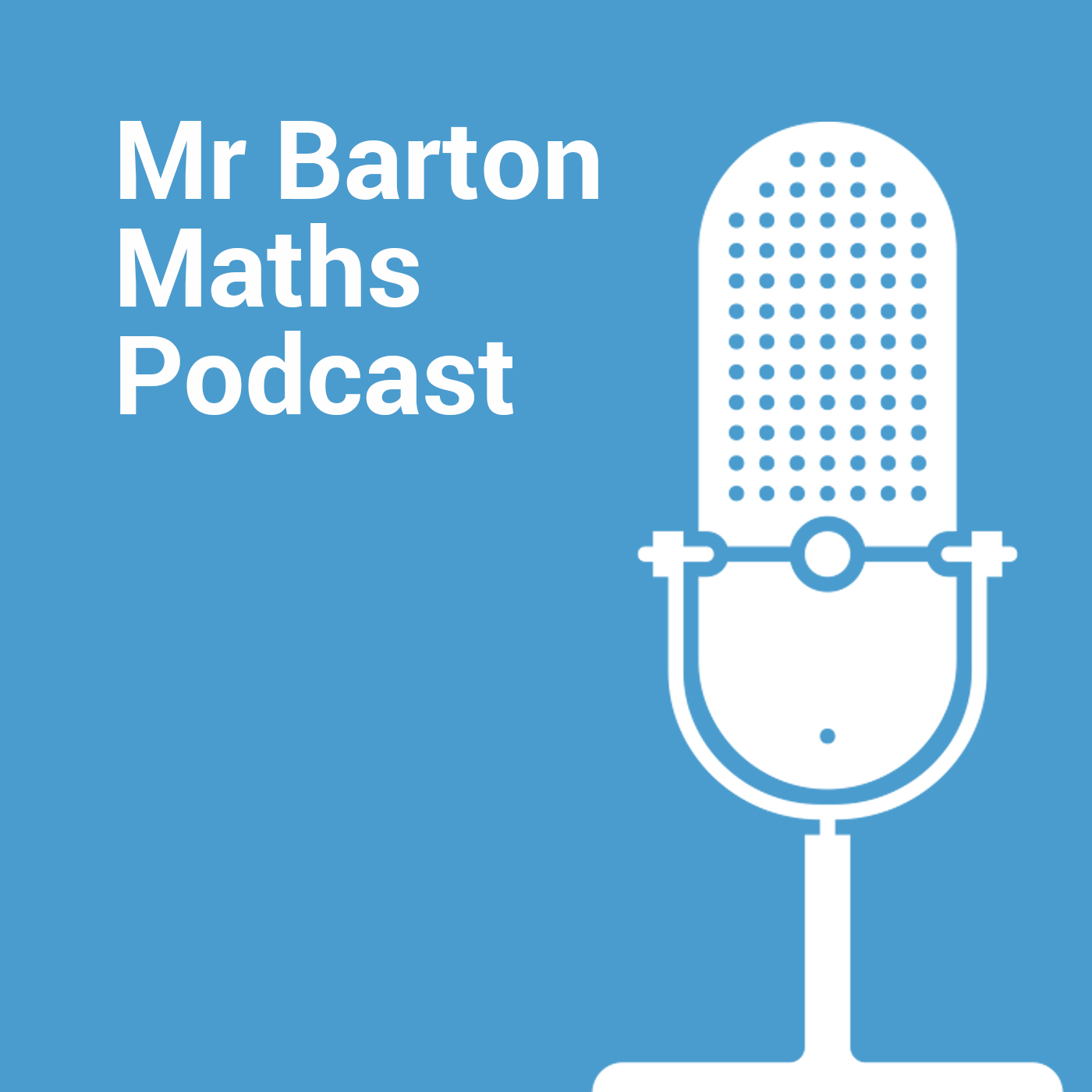
Craig Barton interviews guests from the wonderful world of education about their approaches to teaching, educational research and more. All show notes, resources and videos here: https://www.mrbartonmaths.com/blog/
Kris Boulton and maths teacher Lee Wheeler join me for the third in our monthly deep-dives about how to apply the principles of Atomisation in the classroom. This time we look at problem-solving, prerequisite knowledge, and overtisiation. Access the show-notes here: mrbartonmaths.com/blog/atomisation-in-action-3

Links from the show
- Check out Craig’s brand new 90-minute online CPD series, including two on Atomisation and a free workshop, here
- Sign up for the Unstoppable Learning newsletter
- Visit the Unstoppable Learning website
Episode details
Kris Boulton and maths teacher Lee Wheeler join me for the third in our monthly deep-dives about how to apply the principles of Atomisation in the classroom. This time we look at problem-solving, prerequisite knowledge, and overtisiation.
Episode summary
In this conversation, Craig Barton, Chris Boulton, and Lee Wheeler delve into the themes of atomization in education, particularly in mathematics. They discuss the recent GCSE results, the emotional rollercoaster of teaching, and the importance of checking for understanding before moving on to new material. The discussion highlights the role of atomization in enhancing problem-solving skills and the need for explicit teaching strategies to help students tackle complex problems. They also address the significance of creating a supportive classroom culture and the challenges of ensuring all students grasp prerequisite knowledge before advancing. In this conversation, Kris Boulton, Craig Barton, and Lee Wheeler delve into the intricacies of teaching methodologies, focusing on the importance of building strong mathematical foundations, the role of teacher mental models, and the significance of classroom culture. They discuss the concept of ‘Unstoppable Learning Systems’ and the need for teachers to adapt their strategies to ensure 100% student success. The dialogue emphasizes the balance between structured routines and the versatility required in teaching, while also addressing the challenges faced by educators in achieving high expectations in the classroom. The conversation concludes with reflections on the future of the teaching profession and the need for a more mature approach to teacher training and development.
Takeaways:
- The importance of stepping back to evaluate results.
- Atomization helps students combine different mathematical processes.
- Teaching problem-solving tactics can enhance student understanding.
- Word problems often confuse students more than the math itself.
- Explicitly teaching strategies can help students tackle complex problems.
- Checking for understanding is crucial before moving on to new material.
- Creating a supportive classroom culture aids in learning.
- Using diagnostic questions can quickly identify student understanding.
- Students often need reminders of previously taught material.
- Effective teaching requires adapting to the needs of all students. The gap in student understanding can be vast, requiring tailored approaches.
- Building mathematical foundations is crucial for student success.
- Teachers need mental models to adapt their teaching strategies effectively.
- Classroom culture significantly impacts student engagement and learning.
- The ‘Penny Promise’ emphasizes accountability in teaching.
- Expectations for 100% student success can feel overwhelming for teachers.
- Instructional sequences are essential for effective teaching.
- Teaching routines can enhance student learning and confidence.
- Versatility in teaching methods can lead to better student outcomes.
- The teaching profession needs clearer progression paths for educators.
Video
My usual plugs
- Check out my brand new 90-minute online CPD series here
- You can help support the podcast (and get an interactive transcript of this episode) via my Patreon page at patreon.com/mrbartonmaths
- If you are interested in sponsoring an episode of the show, then please visit this page
- You can sign up for my free Tips for Teachers newsletter and my free Eedi newsletter
- My books are “Tips for Teachers“, “Reflect, Expect, Check, Explain” and “How I wish I’d taught maths”
